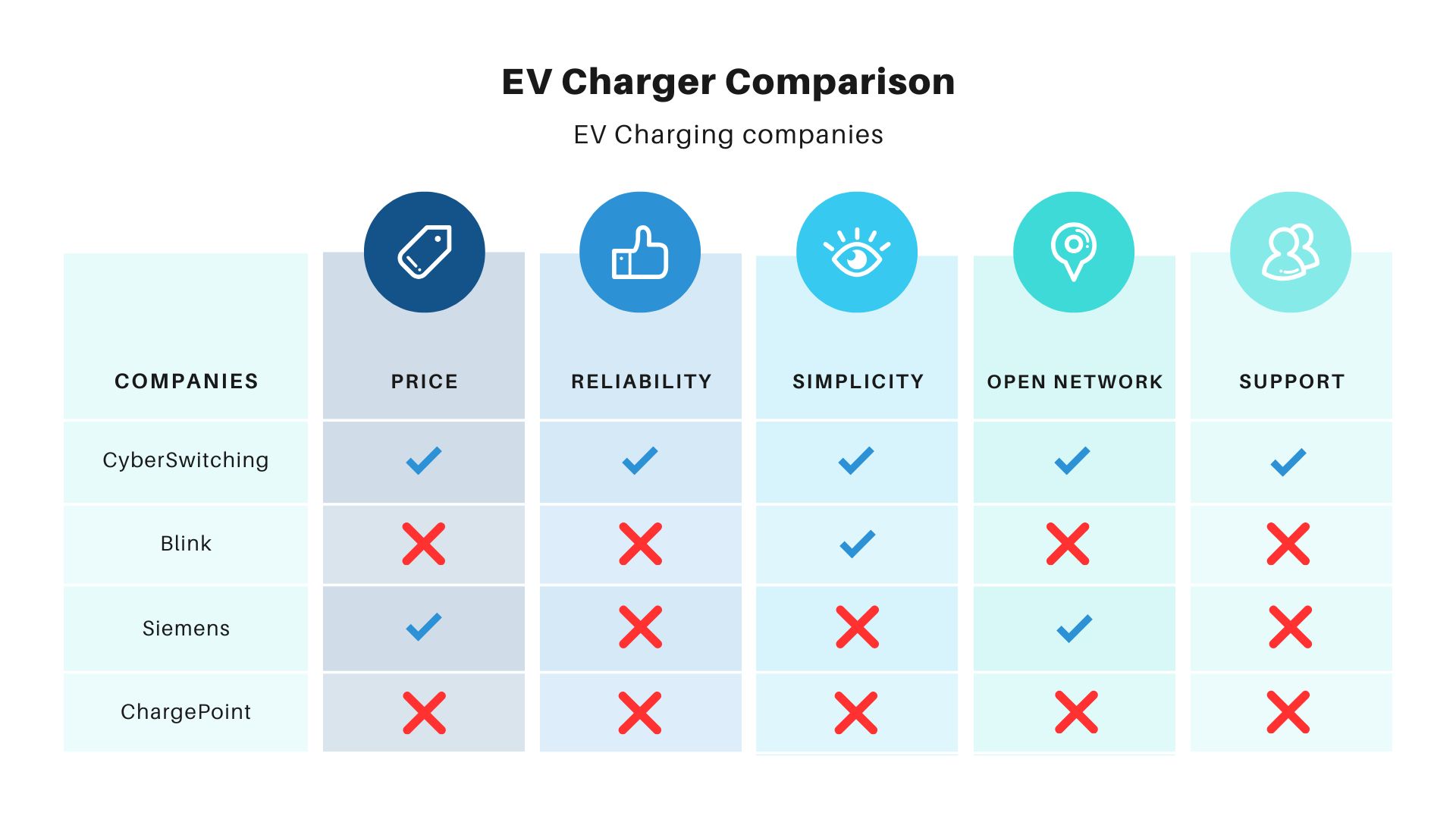Home / Commercial EV Charging Station / Fleet EV Charging Solutions
EV Charging station companies comparison

Top Rated EV Charging stations for Fleets
$1,190.00 – $1,320.00Price range: $1,190.00 through $1,320.00
$2,890.00 Original price was: $2,890.00.$2,790.00Current price is: $2,790.00.
$3,950.00 Original price was: $3,950.00.$3,050.00Current price is: $3,050.00.
As fleet operators navigate the evolving transportation landscape, the demand for electric vehicle (EV) charging stations has surged. The rising prevalence of electric fleets, driven by environmental concerns and EV cost-effectiveness, underscores the crucial role of robust charging infrastructure. Investing in EV charging stations is imperative for fleet operators aiming to manage and fortify their electric vehicle fleets, minimizing downtime, and enhancing operational efficiency.
EV charging stations, enhanced with intelligent technology, provide fleet operators with vital data for optimizing vehicle usage and charging schedules. Fleet management systems leverage this data to implement charging strategies, maximizing efficiency. The seamless integration of charging stations into fleet management systems centralizes monitoring and control, facilitating proactive maintenance, identifying usage patterns, and empowering strategic decision-making for a streamlined and cost-effective fleet operation.
Cyber Switching’s CSE1 model emerges as an ideal solution for fleet operators embracing electric mobility. This charging station seamlessly interfaces with contemporary EVs, delivering a dependable and efficient charging solution tailored for fleet vehicles. With advanced monitoring and a user-friendly interface, the CSE1 empowers fleet operators with real-time insights into charging activities, effectively streamlining operations and optimizing electric vehicle usage.
One of the important benefits of EV fleet charging is to maximize savings and reduce operational costs. This can be done thanks to lower electricity prices than gasoline ones. This allows predictability, which is very complicated for gasoline since it is linked to geopolitical conflicts. Utilities have also enabled special TOU tariffs that can be used for fleet EV charging at lower electricity rates.
Given that electric vehicles have less moving parts and are less complex than gasoline ones, EVs will have lower maintenance requirements than gasoline ones. This maximizes operational time for the fleets as vehicles will not constantly be out of operation due to multiple repairs. Likewise, safety parameters for electric vehicles and gasoline ones are very similar.
Electric vehicles are incredibly powerful and efficient machines. While charging an electric fleet will give you an impressive 85-90% efficiency, an ICE fleet will only be about 20% efficient. This means an electric vehicle uses almost to the fullest all the potential energy that is provided to it. Additionally, thanks to V2X technology, electric cars can be ingeniously used as a source of power as well.
City of
Seattle

City of
San Francisco

City of
Palo Alto

City of
San Ramon

Service By
Medallion

Selecting the right EV charging station for fleets involves careful consideration of several key factors to ensure an efficient and future-proof charging infrastructure. Here are essential considerations for fleet operators:
By carefully considering these factors, fleet operators can make informed decisions when selecting EV charging stations, ensuring they meet the current and future needs of their electric vehicle fleets while maximizing operational efficiency.
All that the Cyber Switching EV charging station needs is to have a direct connection to your local single-phase electricity supply at 240VAC through a circuit branch. Properly sized cables and an external OCPD will be required as per electrical code to connect the CSE1 to your main or sub electrical panel.
Totally! LED status lights in the front of the EV charger show you whether the CSE1 is in standby mode, charging or waiting to start charging.
Blue Light: Standby
Constant Green Light: Waiting to charge after EV is connected.
Flashing Green Light: Charging
The higher the power rating of the EV charging station, the faster your EV will be completely charged. Depending on your need for charging speed, you will have to choose between 3.5kW, 7kW, 10kW or 11.5kW. To find out how many hours on average it would take to charge your EV fleet, search for the battery capacity of your electric vehicle and divide it by the power rating of the CSE1.
Yes, both the CSE1 and CSE2 charging station are ETL-listed equipments with a Type 3 enclosure that is rated to work indoors or outdoors. This means they’re rated to prevent dirt and dust from entering inside the equipment and is also protected against rain, snow, or sleet.
Both CSE1 and CSE2 EV charging stations could be mounted on the wall, on a standard pedestal as well as on the pedestals with cable management
CNET

TechCrunch

Nasdaq

TechTimes

IBT

Yahoo

Torque

Hackernoon

Email: info@cyberswitching.com
Phone: 1.408.436.9830
Having trouble? Find the answer to your query here. Don’t hesitate to contact us!
Follow our latest news and thoughts which focuses exclusively on Power Management and EV Charging